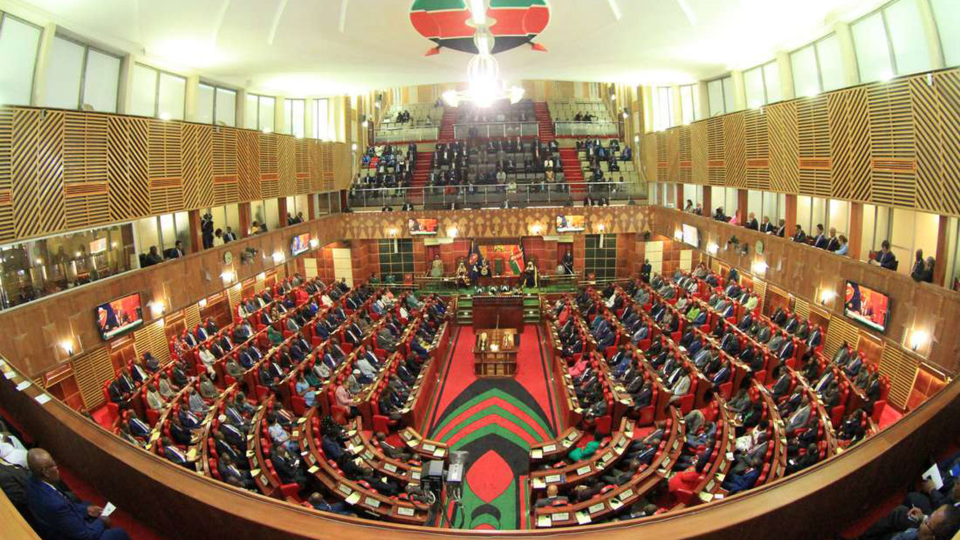MPs Oppose MCA Pension Bill Amid County Budget Concerns
Members of Parliament (MPs) in Kenya have raised significant objections to the proposed County Assemblies Pensions Scheme Bill, 2024, citing its potential to strain county budgets already burdened by financial constraints. The bill, introduced by Senate Majority Leader Aaron Cheruiyot, aims to establish a state-sponsored pension fund to provide retirement benefits for Members of County Assemblies (MCAs) across Kenya's 47 counties. However, the estimated cost of Sh3.11 billion over five years has sparked concerns among lawmakers, who argue that counties cannot afford the additional expenditure without compromising essential services.
The bill proposes a comprehensive pension scheme to replace the current gratuity system, which provides retired MCAs with a payment based on 31 percent of their basic salary for each term served. The new scheme would offer lump sum payments, periodic pensions, and income drawdowns for retired or resigned MCAs, with provisions for spouses or children to receive benefits in the event of an MCA's death. Additionally, the bill mandates that County Assembly Public Service Boards (CAPSBs), as the MCAs' employers, maintain life insurance policies with disability benefits for each MCA, equivalent to three times their annual pensionable emoluments.
Currently, an average MCA earns a monthly salary of Sh154,481, comprising a basic salary of Sh92,689, a house allowance of Sh50,000, a commuter allowance, and a salary market adjustment of Sh11,792. This excludes a sitting allowance capped at Sh124,000 per month. The proposed pension scheme would require CAPSBs to contribute approximately Sh51.86 million monthly for the 2,238 MCAs nationwide, totaling Sh622.31 million annually or Sh3.11 billion over a five-year term. The bill also seeks to transition all MCAs into a universal pension scheme across all county governments, open to other public officers and approved individuals.
During a recent National Assembly session, MPs expressed apprehension about the financial implications of the bill. They argued that the additional costs would exacerbate existing budgetary pressures on counties, many of which are already struggling to deliver basic services such as healthcare, infrastructure, and education. Some MPs highlighted that counties are grappling with pending bills and limited revenue streams, making the proposed pension scheme unsustainable. They urged the Senate to reconsider the bill's financial framework and explore alternative funding mechanisms that would not burden county budgets.
Senator Cheruiyot, the bill's sponsor, defended the initiative, emphasizing its importance in securing the financial future of MCAs who dedicate years of service to their communities. He noted that many former county representatives, particularly those who served as councillors before the devolved system, have faced financial hardship in retirement due to the lack of a structured pension system. The senator argued that the bill addresses a long-standing gap in providing retirement security for ward representatives, ensuring they are not left destitute after their terms.
The bill also includes amendments to align MCA contributions with the National Social Security Fund (NSSF) Act of 2013. Initially, the draft proposed exempting MCAs and their employers from Tier II NSSF contributions, allowing them to channel these funds into private pension schemes. However, the Senate removed this exemption in the latest version of the bill, requiring MCAs and CAPSBs to comply with the same NSSF contribution requirements as other public employees. Under the NSSF Act, both employees and employers contribute six percent to Tier I and Tier II, with maximum contributions set at Sh960 and Sh7,680 per month, respectively, based on an upper earnings limit of Sh72,000 for 2025.
Critics of the bill, including some MPs, argue that the additional NSSF contributions, combined with the proposed pension scheme, would place an undue financial burden on county governments. They contend that counties are already stretched thin, with many unable to meet existing financial obligations. The MPs called for a thorough cost-benefit analysis and broader consultations with county governments to assess the feasibility of the pension scheme before moving forward.
Public reaction to the bill has been mixed. Some Kenyans support the idea of providing retirement benefits for MCAs, recognizing their role in grassroots governance. Others, however, view the bill as an unnecessary expense, especially in light of recent controversies over MPs' and senators' own salary increases. Activists have criticized lawmakers for prioritizing their financial benefits while ordinary citizens face economic challenges, including job losses and rising living costs.
The bill has been forwarded to the National Assembly for further consideration following its review in the Senate. MPs are expected to engage in extensive debates and possibly propose amendments to address the budgetary concerns. The outcome of these discussions will determine whether the pension scheme moves forward or undergoes significant revisions to align with the financial realities of county governments.
As Kenya navigates this contentious issue, the debate over the MCA pension bill underscores broader challenges in balancing fair compensation for public servants with the need to maintain fiscal responsibility at the county level. The resolution of this matter will likely set a precedent for future policies on public sector pensions in Kenya's devolved governance system.


